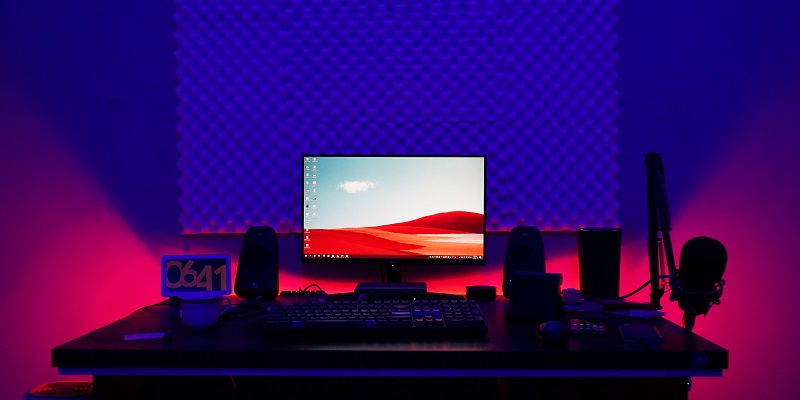In a surprising turn of events, Intel’s highly anticipated Meteor Lake processors may not be making their way to desktop PCs after all. Speculation was quickly fueled after an offhand remark from an Intel executive. However, further clarification from the company has shed light on the situation, revealing a separation in the plans for Meteor Lake. While desktop versions are not expected, the processors will find a home in All-in-One (AIO) PCs, powered by mobile chips. Let’s delve deeper into the details.
Confirmation of a Desktop Version in 2024
During a recent event, Intel executive Lisa M. Holthaus was suddenly asked about the possibility of a “desktop version” of Meteor Lake. Her response seemed to confirm it, as she stated that the desktop version would be arriving in 2024. This exciting news fired up speculation about the potential release of Meteor Lake chips specifically designed for desktop use, such as the anticipated Core i5 or i3 variants.
Intel Pressed for More Details and Confirmation of Separation
Following Holthaus’ statement, industry experts and enthusiasts sought more clarity from Intel. Eventually, the company provided a clarification, confirming that Meteor Lake would indeed be coming to desktops. However, it was specified that this inclusion would be in the form of AIO PCs, which would utilize the mobile chips to power the system.
Drawing a Distinction: Meteor Lake in AIOs, Not Traditional Desktops
The clarification revealed that while Meteor Lake would not have traditional desktop versions, it would still be present in the desktop realm through AIO PCs. This explains the initial confusion as the distinction between a desktop version and desktop form factors, such as AIOs, was not initially clear. AIO PCs combine the display and computing components into a single unit, offering a space-saving solution for desktop users.
Speculation Based on Intel’s Past Discussions and Shared Details
The speculation surrounding the possibility of a Core i5 or i3 Meteor Lake desktop part was not unfounded. Intel has previously discussed the potential for bringing desktop chips to market and has even shared details of early samples. These discussions created a level of expectation and excitement among tech enthusiasts, leading to the assumption that desktop chips were indeed part of Intel’s Meteor Lake plans.
Holthaus’ Statement Taken at Face Value
Holthaus’ comment about a desktop version coming in 2024 fueled further excitement as it seemed to corroborate the speculations. The announcement was unexpected and caught the interviewer off guard, who sought clarification. However, Holthaus missed an opportunity to provide a well-defined explanation, leaving room for interpretation and assumptions.
Possibility of a Core i5 Desktop Part Still Not Ruled Out
While Intel’s clarification regarding the separation may dash hopes for a traditional desktop version of Meteor Lake, it does not completely rule out the possibility of a Core i5 or similar desktop part. The company states that there will be desktop designs, including AIOs, which suggests that a more powerful desktop chip may still be in the works. Intel promises further details in the future, leaving room for enthusiasts to eagerly await any updates in this regard.
The confusion surrounding Intel’s messaging regarding Meteor Lake processors and their availability for desktops highlights the importance of clear and precise communication. As the tech industry eagerly anticipates new product launches, it is crucial for company executives to be more careful with their phrasing and intentions. Misunderstandings can stir speculation and create false expectations, ultimately leading to disappointment among consumers and tech enthusiasts alike.
While Intel’s Meteor Lake processors won’t be gracing traditional desktop PCs, the promise of their inclusion in All-in-One PCs powered by mobile chips brings a new level of versatility to the lineup. As we look ahead to 2024 and beyond, it remains to be seen what Intel has in store for the desktop market and how it plans to address the evolving needs of consumers.

